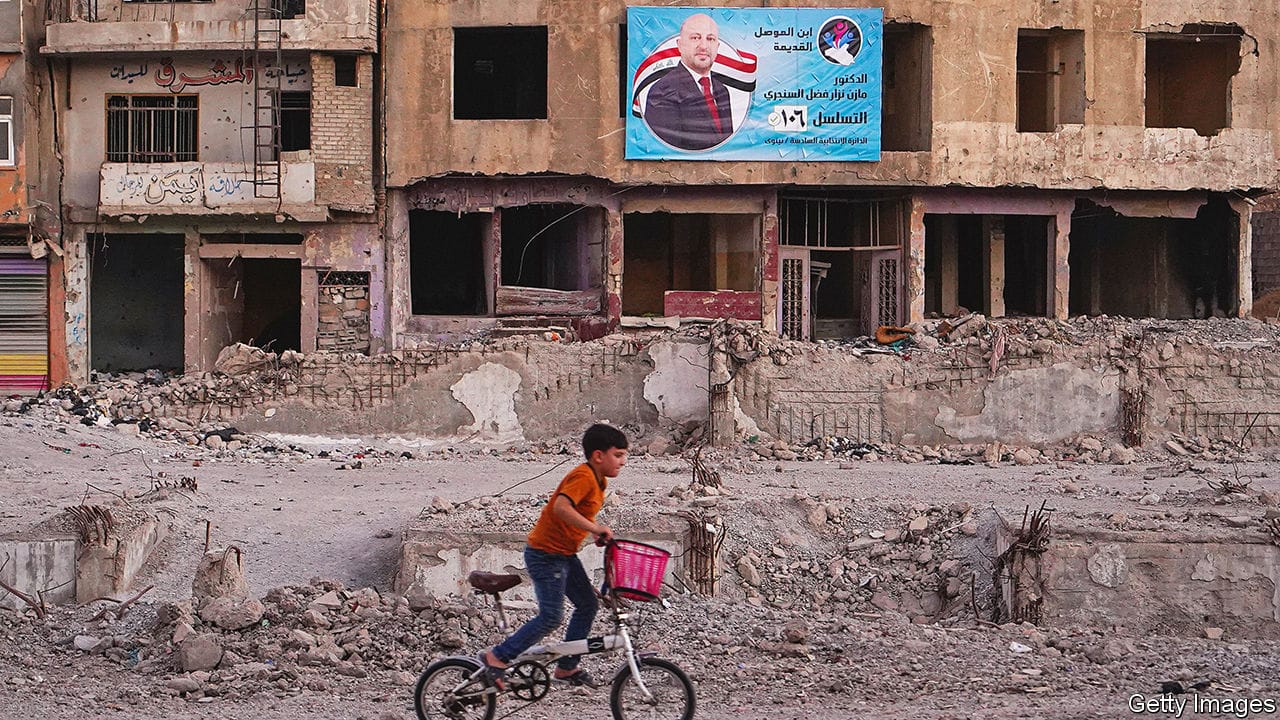- by MAJDAL SHAMS
- 07 28, 2024
-

-
-
Loading

Loading

A FATWA ISSUED by Ali al-Sistani, an influential Grand Ayatollah, was all it took to push Iraq’s Shia Muslims into risking death in battle with the jihadists of Islamic State in 2014. But his edicts seem to be having less success at persuading Iraqis to stroll sedately to the ballot booth to vote on October 10th. Although parliament bowed to the demands of young protesters for an early election, it now seems that most Iraqis will boycott the event. If that happens, sectarian and ethnic militias, especially those closest to Iran, will probably tighten their grip all the more.Iraqis’ previous exercise in democracy was less than edifying. In 2018 only 44% of those eligible bothered to cast their ballots. Some compensated for the low turnout by voting again and again. Days after parliament ordered a recount, a warehouse storing a million ballots went up in flames. Since then Iraq has worked to make the coming vote more credible. It has increased the number of constituencies, which ought to benefit independent candidates. Some 70% of voters will have biometric cards, which should reduce fraud. And there will be five times as many foreign monitors as there were in 2018, including, for the first time, a contingent from the European Union.